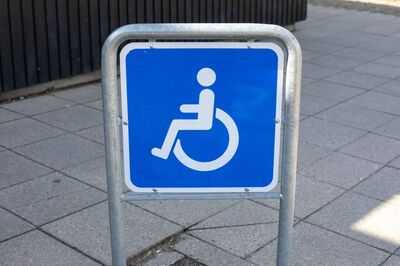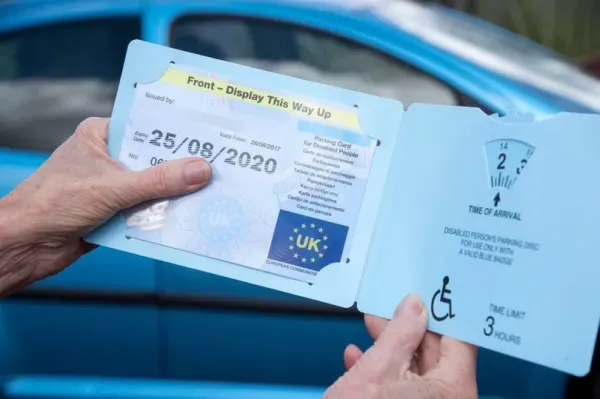
Millions of disabled individuals are able to access crucial parking concessions thanks to the Blue Badge scheme. This allows them to park closer to their destinations, including in spaces reserved for disabled people and sometimes even on double yellow lines.
As of March 31, 2023, there were 2.57 million Blue Badges in circulation across England. This is a rise of 5.7% from the previous year, meaning that 4.6% of the population now hold one of these parking permits.
However, some may not be aware that these Blue Badges have an expiry date. They're only valid for three years, after which they need to be renewed and they don't automatically extend.
READ MORE:
READ MORE:
Badge holders must reapply to keep enjoying the benefits offered by the scheme. If you continue to use an expired permit, you could face a hefty fine of £1,000 for "misusing" the badge.
Between April 1, 2022, and March 31, 2023, a total of 1.14 million badges were issued, an increase of 101,000 badges (a 9.7% rise) from the previous year, reports . This includes both renewals and first-time applications.
However, this means that getting a Blue Badge, whether as a new applicant or for renewal, could involve a significant wait. The government has cautioned that an application can take up to 12 weeks to process. This applies to all applicants, whether they're new or existing badge holders.
If you're in England, Wales, or and need a new Blue Badge or have to renew one, you can apply online here. But if you're in Northern Ireland, it is done differently.
The official gov.uk site explains: "A Blue Badge costs up to £10 in England and £20 in Scotland. It's free in Wales. They usually last up to 3 years. You must reapply for a Blue Badge before your current one expires."
If you've had a Blue Badge before however it doesn't mean you'll automatically get another. Local councils run the schemes, many of which offer guidelines on eligibility and application procedures.
Gateshead Council is one of the local authorities which adminsters the Badges. It says: "To renew your Blue Badge you need to go through the same process as you would if applying for the first time. It is your responsibility to renew your Blue Badge.
"You are not automatically entitled to a new badge because you have had one in the past. Every application must be accompanied by the supporting evidence stated, whether a new application or renewal. This is a requirement set out by the Department for Transport."
People who automatically get a Blue BadgeYou automatically qualify for a Blue Badge if you are aged 3 or over and at least one of the following applies:
If you have any score other than 10 points under descriptor E, in the ‘planning and following journeys’ activity of PIP you may still be eligible for a Blue Badge, but you do not automatically qualify. This includes if you have a higher score of 12. You will have to provide evidence to demonstrate your eligibility which will be assessed as part of your application.
 People who may get a Blue Badge
People who may get a Blue Badge
You may be eligible for a badge if one or more of the following applies:
Your local council will decide if you are eligible for a badge. They cannot start the assessment process until they have all the necessary evidence. It may take 12 weeks or longer to assess your application. If they decide that you are not eligible and you think that they did not take account of all the facts, you can ask them to consider your application again.
Where can you use a Blue Badge?Age UK notes that Blue Badge holders can bypass some parking restrictions, allowing them to park:
Some local councils put additional restrictions on Blue Badge holders. You should check with the local council in the area you’re parking in to find out what their rules are. The scheme doesn't apply in certain boroughs in London, which offer their own parking concessions.
How to apply or renew onlineYou can . There’s a different way to .
You will need a recent digital photo showing your head and shoulders. You will also need a photo or scan of your:
Some councils allow you to apply or renew your Blue Badge on a paper form - contact your local council to check.